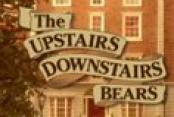
ITV, legally known as Channel 3, is a British free-to-air public broadcast television network. It is branded as ITV1 in most of the UK except for central and northern Scotland, where it is branded as STV. It was launched in 1955 as Independent Television to provide competition and reduce the current monopoly to the then BBC Television. ITV is the oldest commercial network in the UK. Since the passing of the Broadcasting Act 1990, it has been legally known as Channel 3 to distinguish it from the other analogue channels at the time: BBC1, BBC2 and Channel 4.

ITV Central, previously known as Central Independent Television, Carlton Central, ITV1 for Central England and commonly referred to as simply Central, is the Independent Television franchisee for the Midlands. It was created following the restructuring of ATV and began broadcasting on 1 January 1982. The service is owned and operated by ITV plc under the licensee of ITV Broadcasting Limited. Historically Central made a major contribution to the ITV network schedule – especially in entertainment and drama – but today its main responsibility is the regional news service.

ITV2 is a British free-to-air television channel owned by ITV Digital Channels, a division of ITV plc. It was launched on 7 December 1998. For a number of years, it had the largest audience share after the five analogue terrestrial stations, a claim now held by its sister service ITV3 both of which are freely available to a majority of households.

ITV plc is a British media company that holds 13 of the 15 regional television licences that make up the ITV network, the oldest and largest commercial terrestrial television network in the United Kingdom.

UTV is the ITV region covering Northern Ireland, ITV subsidiary and the former on-air name of the free-to-air public broadcast television channel serving the area. It is run by ITV plc and is responsible for the regional news service and other programmes made principally for the area.

Birds of a Feather is a British sitcom originally broadcast on BBC One from 16 October 1989 to 24 December 1998, then revived on ITV from 2 January 2014 to 24 December 2020. The series stars Pauline Quirke and Linda Robson, with Lesley Joseph. It was created by Laurence Marks and Maurice Gran, who also wrote many of the episodes.

ITV Meridian is the holder of the ITV franchise for the South and South East of England. The station was launched at 12:00 am on 1 January 1993, replacing previous broadcaster Television South, and is owned and operated by ITV plc, under the licensee of ITV Broadcasting Limited. Meridian Broadcasting Ltd was one of several ITV plc-owned regional companies to have its legal name changed on 29 December 2006, when it became ITV Meridian Ltd. This company is, along with most other regional companies owned by ITV plc, listed with Companies House as a "Dormant company".
Children's Ward is a British children's television drama series produced by Granada Television and broadcast on the ITV network as part of its Children's ITV strand on weekday afternoons. The programme was set – as the title suggests – in Ward B1, the children's ward of the fictitious South Park Hospital, and told the stories of the young patients and the staff present there.
Kay Mellor was an English actress, scriptwriter, producer and director. She was known for creating television series such as Band of Gold, Fat Friends, and The Syndicate, as well as co-creating CITV's children's drama Children's Ward (1989–2000).

Art Attack is a British children's television programme revolving around art, originally hosted by Neil Buchanan on CITV from 1990 to 2007, and subsequently hosted by Lloyd Warbey on Disney Junior from 2012 to 2015.

Dramarama is a British children's anthology series broadcast on ITV between 1983 and 1989. The series tended to feature single dramas with a science fiction, supernatural and occasionally satirical theme. It was created by Anna Home, then head of children's and youth programming at TVS; however, the dramas themselves were produced by a total of twelve ITV regional companies. Thus, each episode was in practice a one-off production with its own cast and crew, up to and including the executive producer. Some episodes were originally produced for the 1981 ITV childen's anthology series Theatre Box and then were re-screened as Dramarama episodes.

CITV is a British children's morning programming block on ITV2 and formerly a free-to-air channel owned by ITV plc. CITV, then Children's ITV, launched on 3 January 1983 as a late afternoon programming block on the ITV network for children aged 6–12. It replaced the earlier Watch It! branding and introduced networked in-vision continuity links between programmes. These links were originally pre-recorded from a small London studio up until 1987, when Central won the contract to produce live links from their Birmingham studios. In 2004, presentation of CITV was relocated to Granada Television in Manchester, which saw the demise of in-vision continuity. Nine years later, the operations moved to ITV Granada's MediaCityUK studios in Salford.

Mike and Angelo is a British children's television, sci-fi sitcom series, that ran on CITV between 16 March 1989 and 7 March 2000. The show is ITV's longest running sitcom.
The Famous Five is a British television series based on the children's book series of the same name by Enid Blyton. It was first broadcast on Tyne Tees and Harlech Television (HTV) from 10 September 1995 onwards, and on CITV from 1 July 1996 onwards; there were two series between 1995 and 1997, produced by Zenith North and Tyne Tees in 26 twenty-five-minute episodes.
How is a British educational television programme created by Jack Hargreaves. It was produced from 1966 by Southern Television, for which Hargreaves was a presenter and deputy programme controller. It lasted until 1981, when the company lost its franchise to TVS.

Thunderbirds Are Go is a science fiction television programme produced by ITV Studios and Pukeko Pictures. It uses a combination of computer-generated animation and live-action models. It is a remake of the series Thunderbirds created by Gerry and Sylvia Anderson which follows the exploits of International Rescue (IR), a rescue organisation run by the Tracy family out of their secret island base in the Pacific Ocean. They use technologically-advanced craft for land, sea, air and space rescues in their operations, the most important of which are a set of vehicles called the Thunderbirds, piloted by the five Tracy brothers.

Grizzly Tales for Gruesome Kids is a British animated horror television series based on the generic trademarked children's book series of the same name by Jamie Rix. After the first three books were published from 1990 to 1996, Carlton Television adapted the short stories into ten-minute cartoons for ITV, produced by themselves, Honeycomb Animation, and Rix's production company, Elephant Productions. It aired on CITV between January 2000 and October 2006 with six series and 78 episodes, as well as a New Year's Eve special that was over 20 minutes longer than other episodes. The series returned in a new format for Nicktoons with 26 episodes split into two series under the name Grizzly Tales, which aired between May 2011 and November 2012.
This is a timeline of children's programming on the British ITV network and ITV Digital Channels. The timeline starts in 1980 when ITV launched its first branding for children's programming, although programmes for children had been broadcast on ITV from the earliest years of the network.

Eye of the Storm is a British fantasy children's television serial first broadcast in early 1993 on ITV. Made by Childsplay Productions and writer Richard Cooper for then-new ITV franchisee Meridian Broadcasting, the six-part drama was among its first contributions to the Children's ITV strand. It starred Bill Nighy, Judy Parfitt, and Cordelia Bugeja.

The Upstairs Downstairs Bears is a British-Canadian children's stop-motion animated series. The series was co-produced by Scottish Television Enterprises and Canada's Cinar in co-production with Egmont Imagination in Denmark, in association with Imagination Production and FilmFair Animation. The series was broadcast on CITV in the United Kingdom and Teletoon in Canada. It consists of a single season of 13 half-hour episodes, or 26 shorts.















